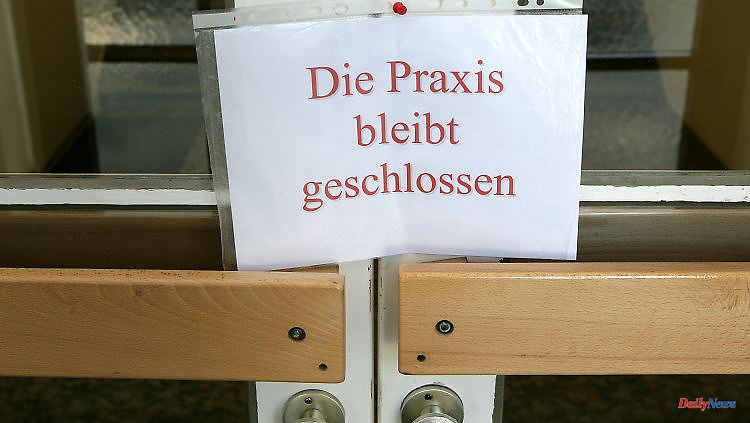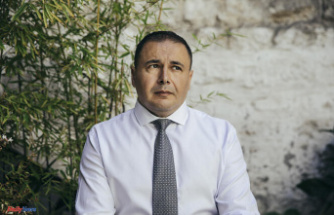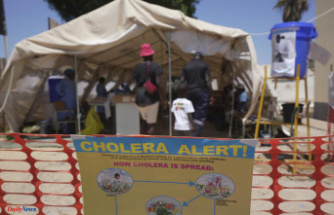During the holidays, many places have closed doors. Most medical practices are also taking a break and staying closed. Or are already hopelessly overcrowded. Unfortunately, viruses and other inconveniences are not impressed. But various health apps can help sufferers.
Unfortunately, colds, flu and the like don't stop before Christmas, New Year's Eve and the New Year and put a damper on the holiday spirit. Where it is not necessary to go to the emergency room or an on-call practice, other measures must provide a remedy. Digital, for example: Many programs and apps offer crucial support. They help with monitoring, diagnostics and the treatment of health problems. But as is so often the case, the forest extends further than the eye can see. But how do you recognize really trustworthy offers on the digital marketplace?
Eckhardt Weber has the answers. He is a digital health expert, investor and founder of Heal Capital. His specialty: Digital solutions that make everyday medical work easier.
With the pandemic, our health experienced a digitization push, which is now also reaching the family doctor's offices. Especially when it comes to coordinating appointments, many already use apps such as Doctolib. It helps patients to find doctors - appointments can be booked quickly and easily there. But if you urgently need a consultation, you might prefer to pick up the phone: A look at the Google ratings shows that mistakes are made here and there when booking appointments. Most of the time, however, this can be fixed quickly and easily.
In addition, a few medical practices are making full use of their digital possibilities: In addition to conventional on-site consultations, they also offer consultations via video. This is how the digital general practice Avi Medical does it, for example. If you want to speak to a doctor on site, you can do so in Munich, Berlin, Hamburg and Stuttgart. In addition, the doctor can be consulted via video consultation and even communicated with the doctor's office via chat.
If the well-known practices are closed over the public holidays, you can call 116117 or the website www.116117.de to find out about the on-call practices in your area.
If you belong to the faction "Google the symptoms first" before going to the doctor, a visit to Doctor Google may have been disappointing for you in the past. However, if you are reluctant to go directly to the doctor, you have a promising alternative: the symptom checker. With the help of artificial intelligence, apps such as Infermedica or Ada analyze symptoms and help to understand them. Searchers get the results within minutes. In addition, further information on the determined state of health is provided and recommendations for further treatment are made.
It's hard to believe, but digitization has also found its way into this area. The applications range from prevention to entire therapies. Anyone who suffers from allergies to herbs, tree and grass pollen, for example, is informed daily about pollen, weather and air quality values by apps such as Klarify. If it is annoying tinnitus that has been causing problems for a long time, applications such as tinnitracks enable neurotherapy very easily via an app. This filters out tinnitus frequencies from your favorite music to calm overactive nerve cells. Patients can put together their own playlist and thus treat the tinnitus.
Therapy places have long been a sore point in our healthcare system. Patients often wait several months for a place in therapy. This is precisely why digital offers are important. But all that glitters is not gold here either. Apps such as Minddoc make it possible to keep an eye on your own health. Others offer online courses that give those affected by mental stress quick and flexible access to professional help. An example of this is Selfapy.
If you just want to calm your own thoughts, you can use apps like 7mind. A coach helps to develop individual routines and manifest more mindfulness in everyday life. A large part of mental well-being comes from healthy habits. Learning and establishing such is not always easy. But you can also find support for this in the App and Google Play stores: actio helps, for example, to stay active. In regular live sessions with real trainers, users are reminded of their goals - and don't accept any excuses. You can also book live sessions with experts and have direct access to support for fitness, wellness or New Year's resolutions.
There is an almost unmanageable field of apps here. That's why it's difficult to see which ones are really good. Apps such as Flo or Clue work with artificial intelligence or other technologies and are intended to help you understand your own cycle. With the app, women keep an eye on their symptoms and receive predictions for the coming period based on them. In addition, the app even offers secret chats in which users can exchange information about sensitive topics. Cycle tracking is an important measure, especially for women who want to become pregnant.
Other applications, such as the uma app, are aimed at women who are expecting children in a few months or who are new mothers. Symptoms are also assessed there, but users will also find tips and tricks to reduce them. The app is designed to help women prepare for childbirth and encourage them to make their own decisions. In addition, they have access to a scientific media library that contains podcasts, articles and videos. These are all professionally and scientifically tested.
Our society is struggling, among other things, with so-called "lifestyle diseases" such as heart disease or obesity. In many cases, these are related to lack of exercise, unhealthy diet and dehydration. That's why exercise apps like weward aim to motivate people to be physically active. The app uses smartphone sensors to track the distance covered on foot - and rewards users with so-called wards. These can then be converted into vouchers, donations or euros. Such exercise apps are also important in the fight against widespread diseases - especially for those who suffer from cardiovascular diseases or obesity.
Apps such as zanadio offer a digital and individually tailored weight loss program that does not rely on doing without, prohibitions and calorie counting. Rather, changes in the areas of behavior, exercise and nutrition should be achieved, which leads to long-term success. There are also applications for diabetes and cancer patients that make their everyday medical work easier. Diabetics can keep an eye on their blood sugar using sensors. These send the values directly to an app, which triggers an alarm in the event of excess or hypoglycaemia. This combination of sensors and apps, such as that of Freestyle Libre, also makes sense for children. Parents can thus keep an eye on their child's blood sugar, even when they are on the way to school or at the playground.
Apps can also help with other common diseases, such as cancer. There are also apps like Cankado that help to keep track of things. Patients can store their documents in the app, enter appointments or simply keep a diary. Other apps, such as the Mika app, help to manage anxiety, stress and fatigue. Patients receive daily check-ups, specialist information about the disease and various resilience training courses. This in turn has a positive effect on mental health.
If you load apps onto your smartphone, you should always be well informed beforehand. Although the App Store and Google Play Store are well secured, malware occasionally gets in there too. These work in the background - whether in harmless games or a health app. To be on the safe side, you should rely on well-known sources:
One thing is clear: if you download health apps onto your smartphone, you need to be well informed beforehand. It is therefore important to consider in advance with whom sensitive health data should be shared. The experiences of other users help to identify which apps also deliver on their promises - and there are quite a few of them. Anyone who would like to make everyday medical life a little easier has a number of options - which can also be used without hesitation.
Health apps can help patients and at the same time relieve the health system somewhat - if they are used correctly. The digital solutions cannot be compared to a classic consultation with a doctor you trust, but the digitization of health offers some exciting possibilities. Nevertheless, if you feel more comfortable and safer analogously, you should better resort to traditional treatment at the doctor's. And in the event of a medical emergency - and please only then - the smartphone must only be used to make phone calls in order to get help directly from the fire brigade by dialing 112.












